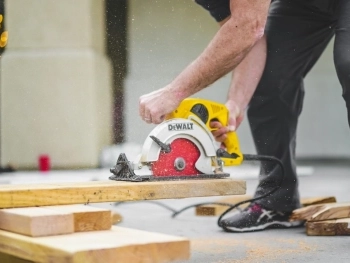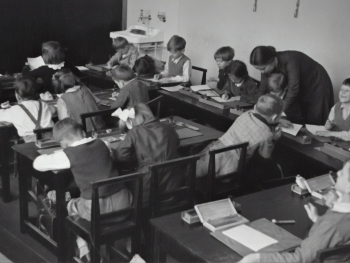Puzzles have long been a favorite pastime for children and adults alike. Beyond providing entertainment, they serve as an invaluable tool in a child’s development. Whether it’s a jigsaw puzzle, shape sorter, or a brain teaser, these activities help build cognitive, physical, and emotional skills that are crucial for growth. In this article, we will explore the various benefits puzzles offer and how they play an essential role in shaping a child's development.
Enhancing Cognitive Skills
Puzzles engage children in problem-solving, pattern recognition, and logical reasoning. These activities encourage cognitive growth in multiple ways:
1. Problem-Solving Abilities
Puzzles challenge children to think critically about how pieces fit together. This process encourages them to analyze and experiment with different solutions, improving their problem-solving skills and decision-making abilities.
2. Memory Boost
Many puzzles require children to remember shapes, colors, and patterns to complete them. This practice strengthens both short-term and long-term memory, enhancing their ability to retain information in other areas of learning.
3. Spatial Awareness and Visual Processing
As children manipulate puzzle pieces and visualize their placement, they develop spatial awareness. This skill is crucial in subjects such as mathematics, geometry, and even daily tasks like navigating through a room.
4. Developing Focus and Patience
Completing a puzzle requires concentration and persistence. Children learn to focus on a task and experience the satisfaction of achieving a goal, fostering patience and perseverance.
Encouraging Fine Motor Skills and Coordination
Puzzles are an excellent way to refine fine motor skills and hand-eye coordination in young children.
1. Hand-Eye Coordination
Children learn to coordinate their hand movements with their visual perception as they pick up and place puzzle pieces in the correct spots. This skill is crucial for activities like writing, drawing, and playing sports.
2. Fine Motor Skill Development
Manipulating small puzzle pieces helps children develop dexterity and control over their hand movements. This is particularly beneficial for toddlers who are still refining their grasp and finger control.
3. Bilateral Coordination
Using both hands to fit puzzle pieces together helps improve bilateral coordination, which is essential for everyday tasks like tying shoelaces, buttoning shirts, and using utensils.
Language and Communication Development
Puzzles provide opportunities for children to expand their vocabulary and enhance communication skills in various ways:
1. Learning New Words
When engaging with puzzles that feature letters, numbers, or images, children learn new words and concepts. Parents and caregivers can encourage this by discussing the images and names of objects while playing.
2. Enhancing Verbal Skills
Working on a puzzle with others encourages verbal communication. Children learn to express their thoughts, ask for help, and describe what they see, improving their speaking and listening abilities.
3. Understanding Instructions
Following puzzle-related instructions helps children comprehend and execute given directions, reinforcing their ability to listen and process information effectively.
Emotional and Social Development
Puzzles not only enhance cognitive and motor skills but also contribute to emotional and social growth.
1. Boosting Self-Esteem and Confidence
Successfully completing a puzzle instills a sense of accomplishment and boosts a child’s confidence. The ability to solve problems on their own fosters a positive self-image and encourages independent thinking.
2. Teaching Patience and Resilience
Puzzles require time and effort to complete, teaching children patience and resilience. When faced with challenges, they learn to persist rather than give up easily.
3. Encouraging Cooperative Play
When working on puzzles with siblings, friends, or parents, children develop teamwork and cooperation skills. They learn to take turns, share ideas, and support each other, fostering social bonds and communication.
Stimulating Creativity and Imagination
Puzzles can inspire creativity and imagination, especially those with colorful pictures, unique shapes, or open-ended designs.
1. Encouraging Creative Thinking
Some puzzles, like tangrams or open-ended pattern puzzles, challenge children to think creatively and explore different ways of assembling pieces.
2. Expanding Imaginative Play
Themed puzzles, such as those featuring animals, fairy tales, or space exploration, can spark a child’s imagination and inspire storytelling and role-playing activities.
3. Introducing Artistic Appreciation
Puzzles featuring famous artwork or intricate designs expose children to different art styles, enhancing their appreciation for visual arts.
Age-Appropriate Puzzle Choices
To maximize the benefits of puzzles, it’s important to select ones that are suitable for your child’s developmental stage.
Infants (0-12 months)
- Large, chunky wooden puzzles with simple shapes.
- Soft fabric or foam puzzles with bold colors.
- Interactive sensory puzzles with textures and sounds.
Toddlers (1-3 years)
- Simple shape-sorting puzzles.
- Knob puzzles with pictures of everyday objects.
- Large-piece jigsaw puzzles with 4-10 pieces.
Preschoolers (3-5 years)
- More complex jigsaw puzzles (10-50 pieces).
- Alphabet and number puzzles to promote literacy and numeracy.
- Themed puzzles featuring favorite characters or interests.
School-Age Children (5+ years)
- Challenging jigsaw puzzles (50+ pieces).
- Brain teasers and logic puzzles.
- Crossword puzzles and word searches for language development.
Tips for Parents to Encourage Puzzle Play
To help your child benefit from puzzles, consider these tips:
- Choose Age-Appropriate Puzzles – Ensure puzzles match your child’s skill level to avoid frustration or boredom.
- Make It Fun – Encourage puzzle-solving as a game rather than a chore.
- Play Together – Work on puzzles together to bond and teach problem-solving strategies.
- Offer Praise and Encouragement – Celebrate small achievements to boost confidence.
- Rotate Puzzles – Introduce new puzzles periodically to keep things fresh and exciting.
- Create a Puzzle-Friendly Environment – Provide a dedicated space with good lighting and minimal distractions.
- Incorporate Puzzle Time into Daily Routine – Setting aside regular puzzle time helps reinforce learning and engagement.
Conclusion
Puzzles offer numerous developmental benefits for children, from enhancing cognitive and motor skills to promoting emotional and social growth. By incorporating puzzles into daily playtime, parents can provide their children with a fun, engaging, and educational activity that fosters lifelong learning skills. Whether through traditional jigsaw puzzles, logic games, or creative problem-solving challenges, puzzles remain a timeless and valuable tool in childhood development.
Source: Voo Puzzle
puzzles child development cognitive skills fine motor skills early learning educational toys kids activities play-based learning problem-solving brain boost
















